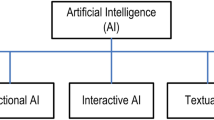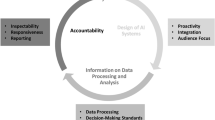Abstract
Model Management Systems (MMS) have become increasingly important in handling complicated problems in Decision Support Systems (DSS). The primary goal of MMS is to facilitate the development and the utilization of quantitative models to improve decision performance. Much current research focuses on model construction. Where early research used deductive reasoning approaches to construct new models, more recent efforts use inductive reasoning mechanisms. Both approaches have their drawbacks. Deductive reasoning methods require a strong domain theory (which may not exist or may be too complex to apply) and ignore previous solving experience. Inductive reasoning methods can take advantage of precedents or prototypical cases, but do not employ domain knowledge. Both methods are limited in learning capacity. This study proposes a Multi-Agent Environmental Decision Support System, which integrates an Inductive Reasoning Agent, and an Environmental Learning Agent to perform new model formation and problem solving. New models can be generated by the coordination of both the Inductive Agent and the Deductive Agent. At the same time, a model repair process is undertaken by the Environmental Learning Agent when the prediction resulting from existing knowledge fails.
Similar content being viewed by others
References
S. Alter,Decision Support Systems: Current Practices and Continuing Challenges (Addison-Wesley, Reading, MA, 1980).
W.M. Bain, Case-Base reasoning: a computer model of subjective assessment, Ph.D. Thesis, Yale University (1986).
R.W. Blanning, Issues in the design of relational model management systems,AFIPS Conf. Proc. (1983) pp. 395–401.
R.H. Boczek, C.W. Holsapple and A.B. Whinston, The evolving roles of models in decision support systems, Dec. Sci. 11(1980)337–356.
R.H. Bonczek, C.W. Holsapple and A.B. Whinston,Foundations of Decision Support Systems (Academic Press, New York, 1981).
R.H. Bonczek, C.W. Holsapple and A.B. Whinston, A generalized decision support system using predicate calculus and network data base management, Oper. Res. 29(1981).
I. Bratko,PROLOG Programming for Artificial Intelligence (Addison-Wesley, 1986).
P. Carando, A retrieval-by-reformulation interface that promotes software visibility,Workshop on Reusability, Syracuse University, Syracuse, New York (June, 1990).
T.H. Chi, R. Kiang and M.Y. Kiang, Using explanation based learning method to construct the model base of a decision support system,Proc. Annual Conf. Int. Academy of Information Systems, Chicago (December, 1990).
D.R. Dolk and B.R. Konsynski, Knowledge representation for model management system, IEEE Trans. Software Eng. SE-10(1984)619–628.
J.J. Elam, Model management systems: a framework for development,Proc. 1980 SE AIDS, pp. 35–38.
J.J. Elam and J.C. Henderson, Knowledge engineering concepts for decision support system design and implementation, Inf. Manag. 6(1983)109–114.
E.A. Feigenbaum, B.G. Buchanan and J. Lederberg, On generality and problem solving: a case study involving the dendral program, in:Machine Intelligence, ed. B. Meltzer and D. Michie (American Elsevier, New York, 1971) pp. 165–190.
K. Hammond, CHEF: A model of case-based planning, Proc. Am. Assoc. Art. Intell., Philadelphia, PA (1986) pp. 267–271.
F. Harary, R.Z. Norman and D. Cartwright,Structural Models: An Introduction to the Theory of Directed Graphs (Wiley, New York, 1965).
M.N. Huhns,Distributed Artificial Intelligence, Vol. 1 (Morgan Kaufmann, Los Alos, CA 1988).
S. Hwang, Automatic model building systems: a survey, DSS-85 Transactions, San Francisco, CA (1985) pp. 22–32.
J. Klir and M. Valach,Cybernetic Modeling (D. Van Nostrand, Princeton, NJ, 1965).
J.L. Kolodner, Improving human decision making through case-based decision aiding, AI Magazine 12(1991)52–68.
T.P. Liang, Representing models as data, J. MIS 2(1986)36–48.
T.P. Liang, Development of a knowledge-based model management system, Oper. Res. 36(1988).
T.P. Liang, Reasoning in model management systems,Proc. 21st Hawaii Int. Conf. on System Science, IEEE Computer Society Order Number 843, Vol. 3(1988) pp. 461–470.
T.P. Liang, Modeling by analogy: an approach to enhancing model management systems, Working paper no. 89-1524, University of Illinois at Urbana-Champaign.
M. Minsky, A framework for representing knowledge, in:The Psychology of Computer Vision, ed. P.H. Whinston (McGraw-Hill, New York, 1975).
A. Newell and H. Simon,Human Problem Solving (Printice-Hall, Englewood, NJ, 1972).
H.P. Nii, N. Aiello and J. Rice, Experiments on cage and polygon: measuring the performance of parallel blackboard systems,Distributed Artificial Intelligence, Vol. 2, ed. L. Gasser and M. Huhns (Pitman, London, 1989) pp. 319–384.
C.K. Riesbeck and R.C. Schank,Inside Case-Based Reasoning (Lawrence Erlbaum Associates, Hillsdale, NJ, 1989).
M. Shaw, Mechanisms for cooperative problem solving and multi-agent learning in distributed artificial intelligence systems,Proc. 10th Int. Workshop on DAI, Bandera, Texas (1990).
M. Shaw and A.B. Whinston, Learning and adaptation in distributed artificial intelligence systems,Distributed Artificial Intelligence, Vol. 2, ed. L. Gasser and M. Huhns (Pitman, London, 1989) pp. 413–430.
M.J. Shaw, Pei-Lei Tu and P. De, Applying machine learning to model management in decision support system, Dec. Support Syst. 4(1988)285–305.
W.-M. Shen, Learning from the environment based on actions and precepts, Ph.D. Thesis, Carnegie Mellon University (1989).
W.-M. Shen and H.A. Simon, Rule creation and rule learning through environmental exploration,Proc. 11th IJCAI (1989).
R.H. Sprague, A framework for the development of decision support systems, MIS Quaterly(December 1980)1–26.
G.W. Waterson, Knowledge based management for model management, Master's Thesis, Naval Post Graduate School (1983).
Author information
Authors and Affiliations
Rights and permissions
About this article
Cite this article
Chi, R.T.H., Carando, P. & Whinston, A.B. MEDSS: A Multi-Agent Environmental Decision Support System framework for model management. Ann Oper Res 38, 97–136 (1992). https://doi.org/10.1007/BF02283652
Issue Date:
DOI: https://doi.org/10.1007/BF02283652




